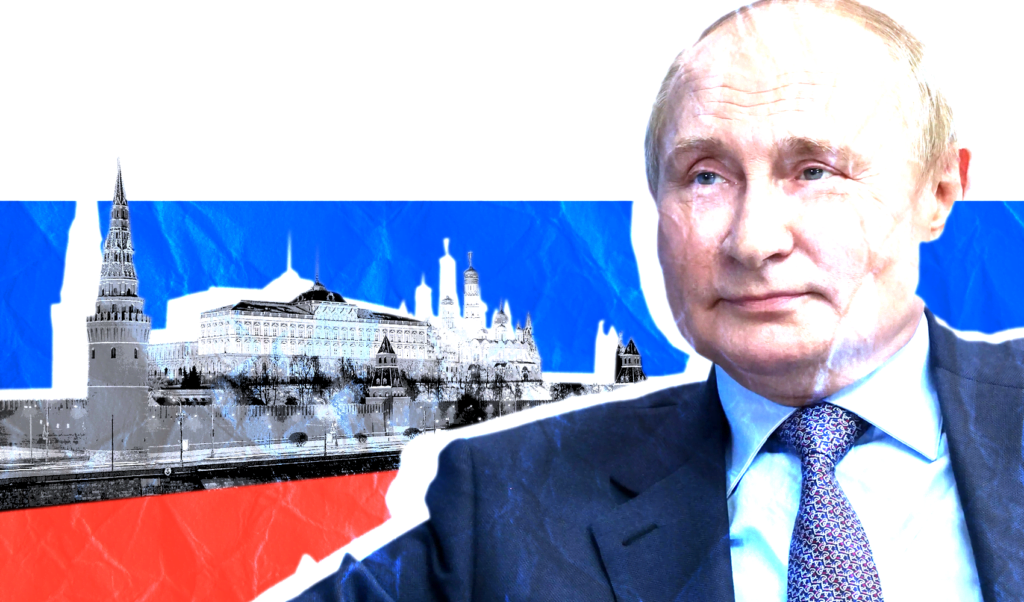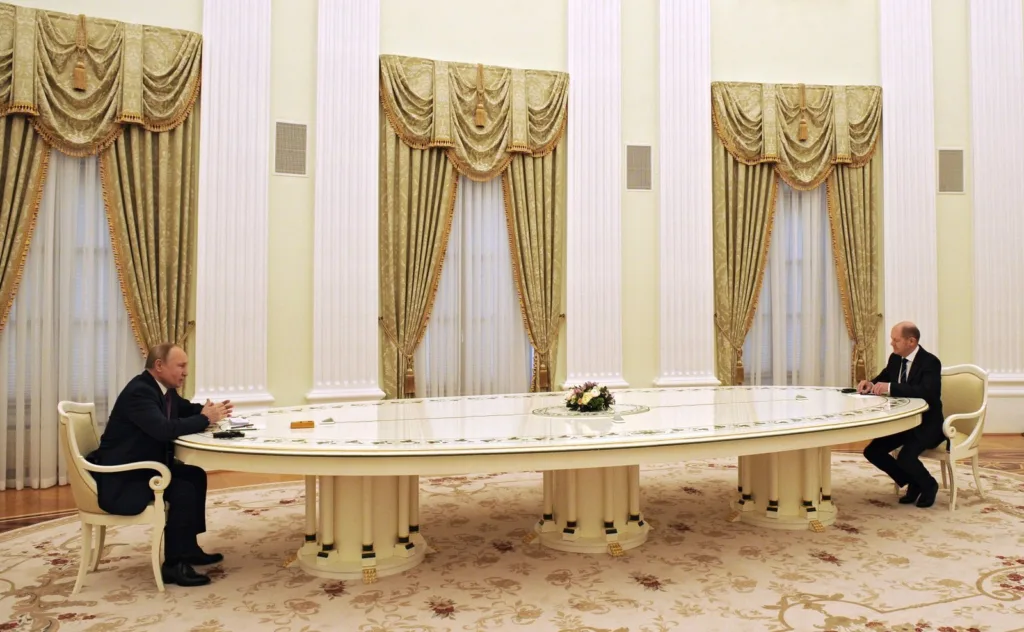As Vladimir Putin wins another term in the Kremlin, his use of sham elections to legitimise his control poisons democracy's value globally.
 Democracy needs renewal. If this doesn’t happen then before long our elections will become no better than those run by autocrats like Vladimir Putin. : Shealah Craighead For the White House Public Domain
Democracy needs renewal. If this doesn’t happen then before long our elections will become no better than those run by autocrats like Vladimir Putin. : Shealah Craighead For the White House Public Domain
As Vladimir Putin wins another term in the Kremlin, his use of sham elections to legitimise his control poisons democracy’s value globally.
For just the eighth time in Russian history, a presidential election has been voted on.
The political parties trotted out their candidates; there was a campaign of sorts; and to the shock of absolutely no one, Vladimir Putin was re-elected as President.
Putin is one of just three men who have held the position since the first democratic election in 1991. Putin, who replaced Boris Yeltsin in 2000, has effectively ruled the country for 24 years, only broken by a four-year job swap with the closely allied Dmitry Medvedev as Prime Minister.
The look doesn’t bode well for the multi party democracy that some dreamed Russia could have become post-communism.
Russia, however, is not unique. Across the globe elections will be held in 2024 in many states with less than perfect democratic credentials, from North Korea and Syria to Belarus and Iran.
It would be a fair question to ask, for regimes controlled by a single party or leader, what is the point?
But it’s simple. These states that range from being ‘mixed regimes’ to neo-Stalinist continue with this charade because they crave legitimacy.
Democratic consent remains the most powerful source of legitimacy for any state. These ‘managed’ elections give force to the moth-eaten adage that ‘hypocrisy is the tribute vice pays virtue’.
But before we get on our high horse for a bout of liberal democratic dressage, we should reflect on the state of democracy at home.
We are living through a period of democratic decline. Freedom House’s Freedom in the World 2024 report notes that we are in the 18th year of aggregate decline of freedom.
This has been driven by the increased manipulation of elections. The tactics range from the crude stuffing of ballot boxes, the creation of biased rules and leveraged media coverage to benefit incumbents, to sophisticated disinformation campaigns.
This year might be the breakout year for AI-driven disinformation.
Ahead of the presidential elections in the United States there have already been AI-generated images ranging from President Joe Biden wearing what appears to be a woman’s swimsuit, presumably to fuel the current moral panic about gender identity, to Donald Trump being arrested, for obvious reasons.
Indeed, the upcoming American presidential election is emblematic of the crisis of democracy.
Trump faces criminal charges for election interference, refused to abide by the norm of the peaceful transition of power, and is running a campaign diffuse with incoherent rhetoric, incomplete sentences, febrile conspiracy theories, and promises for revenge against his rivals.
On the other you have Biden: frail, aged, out of touch, with every appearance of being yesterday’s man unable to cope with the challenges of the present.
He has won deserved praise for his State of the Union address, but when ‘not appearing to have dementia’ is the standard for success, we might ask whether the standards for the most powerful political office on the planet have somewhat declined.
This election is a contest between authoritarian populism and the neo-liberal consensus which has been on life-support since the financial crisis.
Neither is good for democracy.
How we got here is simple: Hubris.
In the closing decades of the old century it seemed like democracy would thrive because there was no alternative, while at the same time neo-liberal ideology began to aggressively shrink the state.
There was a wilful ignorance that democracy does not exist in a vacuum.
The loss of secure jobs with globalisation, the growth of intergenerational disparities in opportunity, the increased concentration of wealth in the hands of the few, the emergence of new forms of disinformation, and many other factors have eroded and continue to erode the civic basis necessary for democracy to function.
It parallels the logic that failed in Afghanistan and Iraq, where America and its allies tried to parachute a liberal democracy on a society ravaged by war, sectarianism, and inter-ethnic enmity.
It shows the same naïve assumption that liberal democracy does not need anything but itself to thrive, that it will produce the conditions of its own success. The failure to recognise this has led to the disastrous failure of adventures abroad and the slow rot of democracy at home.
This has led states like China to position itself as a superior model of democracy. In 2021 the government published a white paper called China: Democracy that Works, which sharply contrasted Xi Jinping’s ‘whole-process people’s democracy’ with the chaotic state of Western democracy.
We may regard this paper with a degree of cynicism, but it shows how vulnerable the liberal democratic model has become when it can be so open to be dunked upon.
My research on democracy is informed by the republican or neo-Roman tradition of political thought (think Cicero and Harrington, not Nixon and Trump).
The central value in this tradition, as expressed by Philip Pettit, is freedom from arbitrary interference. Democracy is one of the best means of securing this condition, but it is not the only one.
Republicans have stressed the importance of civic education. This is more than mindless pledges to flags or brute nationalism but the cultivation of solidarity between citizens, respect for differences, and the duty to put the common good ahead of private gain.
The woeful decline of civic education has been undeniably bad for democracy, as has the diminution of the humanities and social sciences where students learn to be analytical and critical thinkers. Civic education must also deal with the new threats to democracy.
The plague of disinformation on the internet has shown that digital literacy is a political problem. If people cannot tell fact from fiction and are willing to enter closed cult-like epistemic communities, such as the Q-Anon conspiracy, then they will not be functional democratic citizens.
We must also recognise that democracy does not work when inequality runs rampant.
As Jean Jacques Rousseau wrote in The Social Contract with “respect to riches, no citizen shall ever be wealthy enough to buy another, and poor enough to be forced to sell himself”.
Poverty makes one vulnerable to arbitrary power and prone to manipulation by powerful forces.
Our metrics for measuring prosperity often do not capture this. The stock market may hit an all-time high, but that only really matters if it translates into higher standards of living and secure employment.
We need to re conceptualise progressive taxation and redistributive measures not as ‘handouts’ but as an essential part of democratic citizenship
The point here is that democracy needs renewal. If this doesn’t happen then before long our elections will become no better than the electoral fig leaves that cover today’s despotisms.
Dr. Gwilym David Blunt is a Lecturer in International Relations at the University of Sydney. He is a Honorary Senior Research Fellow of the Centre for International Policy Studies, a Fellow of the Higher Education Academy, and a Fellow of the Ethics Centre.
Originally published under Creative Commons by 360info™.









